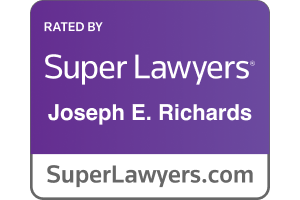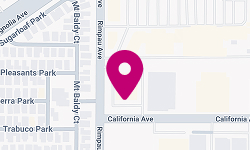- Free Consultation: (888) 883-6588 Tap Here To Call Us
How Am I Protected While Taking A Leave Of Absence?

Understanding the complexities of employment law, especially when it comes to requesting a leave of absence, can be challenging for employees in California. This guide was created to explain these complexities, aiming to educate employees about the myriad of rights and legal protections they are entitled to under state and federal laws when they need to step away from work.
Whether it’s for medical reasons, family responsibilities, or other personal necessities, understanding these laws is crucial in ensuring that employees can make informed decisions without the added stress of job insecurity or legal uncertainties.
The importance of comprehending both state and federal laws cannot be overstated. While federal laws provide a baseline of protections, California often extends these rights, offering broader safeguards that are unique to the state. This dual layer of legal protection can offer significant benefits to employees, but it also introduces a level of complexity that requires a clear and thorough understanding. By breaking down these laws, their applications, and the protections they afford, this guide is a valuable resource, empowering employees to confidently navigate their leave of absence, fully aware of their rights and the legal shields to protect those rights.
Federal Laws Concerning Leave of Absences
At the federal level, the Family and Medical Leave Act (FMLA) is a cornerstone in protecting employees’ rights during leaves of absence. To be eligible for FMLA benefits, an employee must have worked for their employer for at least 12 months and a minimum of 1,250 hours over the past year.
On the other hand, the employer must have at least 50 employees within a 75-mile radius. Under the FMLA, eligible employees are entitled to up to 12 weeks of unpaid leave per year for specific reasons, including the birth and care of a newborn child, adoption or foster care placement of a child, the employee’s serious health condition, or to care for an immediate family member (spouse, child, or parent) with a serious health condition.
In addition to these provisions, FMLA also covers exigency leave for families of members of the National Guard or Reserves or of a regular component of the Armed Forces when the service member is on active duty or called to active duty status. During this leave, employees are guaranteed health benefits equivalent to those they would have received had they continued working. Perhaps most critically, upon return from FMLA leave, an employee must be restored to their original job or an equivalent job with no loss in benefits, pay, or other terms and conditions of employment.
The Americans with Disabilities Act (ADA) further bolsters employee rights by requiring employers to consider leave as a reasonable accommodation for employees with disabilities, provided such leave does not cause undue hardship to the employer. This means that under the ADA, employees with disabilities may be entitled to more flexible leave policies as reasonable accommodation. The ADA’s requirements apply to all private employers, state and local governments, employment agencies, and labor unions with 15 or more employees.
Employers are obligated under the ADA to engage in an interactive process with the employee to determine whether reasonable accommodation can be made, including the possibility of leave or a modified work schedule. This accommodation is tailored to the individual’s specific circumstances and may extend beyond what is typically offered under FMLA. Employees must understand that while the ADA does not explicitly guarantee leave as accommodation, it requires employers to consider it a viable option, thereby offering an additional layer of protection for those with disabilities.
California State Laws on Leave of Absences
The California Family Rights Act (CFRA) is a pivotal state law that echoes and extends the Federal Family and Medical Leave Act (FMLA) provisions. While both laws offer up to 12 weeks of unpaid leave for certain family and medical reasons, the CFRA casts a wider net regarding the types of employers it covers. Unlike the FMLA, which applies to employers with 50 or more employees, the CFRA applies to any person employing five or more employees. This broader applicability means that more California workers can avail themselves of leave for a child’s birth, adoption, or foster care placement, to care for a seriously ill family member, or for the employee’s own serious health condition.
Additionally, while the FMLA and CFRA exclude certain highly compensated employees from their job restoration guarantee, the CFRA’s threshold for this exclusion is higher, thereby affording protection to more higher-earning employees. Moreover, the CFRA includes provisions for a broader definition of family members beyond the FMLA’s scope, encompassing domestic partners and adult children.
In addition to CFRA, the Pregnancy Disability Leave (PDL) is another significant California statute. PDL entitles employees disabled by pregnancy, childbirth, or related medical conditions to up to four months (approximately 17 1/3 weeks) of leave. This leave is distinct from CFRA leave and is available even if the employer has fewer than five employees, making it a vital provision for workers in smaller companies. During PDL, employees are entitled to continuation of their health insurance benefits under the same terms as if they had continued to work. Furthermore, upon conclusion of the PDL, employees are generally guaranteed a return to the same position or a comparable one, barring any legitimate business reasons that may preclude this.
California’s Paid Family Leave (PFL) program complements these protections by offering financial assistance during leave. PFL provides partial wage replacement to employees who take time off work to care for a seriously ill family member or to bond with a new child. To be eligible for PFL benefits, an individual must be a part-time or full-time employee who contributes to the State Disability Insurance (SDI) and has lost wages due to their leave.
The benefits are payable for up to eight weeks within a 12-month period, and the amount is determined by a percentage of the employee’s weekly salary, subject to a maximum set by the state. The application process for PFL benefits involves filing a claim with the California Employment Development Department (EDD), typically within the first 41 days of the family leave.
The process requires documentation, such as medical certificates for caregiving or birth certificates for bonding with a new child, to substantiate the claim. This program is a valuable resource for employees, ensuring they receive some income during their leave, thereby reducing the financial strain often accompanying unpaid leave periods.
Types of Discrimination Related to Leave of Absences
Discrimination in the context of a leave of absence can manifest in direct and indirect forms, impacting employees in diverse and often subtle ways. Direct discrimination is typically more overt and occurs when an employee is treated less favorably explicitly because they decide to take a leave of absence. For example, an employee might be overlooked for a promotion or subjected to unfavorable changes in their work conditions solely due to their recent or planned leave.
Indirect discrimination, conversely, involves policies or practices that appear neutral on the surface but disproportionately disadvantage those who take leaves of absence. An instance of this could be a company policy that requires uninterrupted service for a certain period to qualify for a bonus, inadvertently penalizing those who have taken family or medical leave.
Other scenarios include subtle changes in job roles or responsibilities after an employee returns from leave, which may not be as immediately apparent as direct discrimination but can have a long-term impact on career progression and job satisfaction.
Retaliation is another critical concern for employees taking leaves of absence. Retaliation involves adverse actions taken by an employer against an employee as a direct response to the employee exercising their legal rights to go on leave. Identifying such retaliatory actions can sometimes be challenging, ranging from obvious measures like termination or demotion to more insidious ones like exclusion from meetings or a significant increase in workload. Retaliation can also manifest as a sudden negative shift in performance evaluations post-leave.
The legal implications of retaliation are profound, as federal and state laws, including the FMLA and the California Family Rights Act, expressly prohibit retaliation against employees who lawfully exercise their rights to take leave. Employers found guilty of retaliating can face a variety of legal consequences, including being ordered to reinstate the employee, pay back wages, restore lost benefits, and even compensate for emotional distress and legal fees. Employees need to be aware of these protections and recognize the signs of retaliation, as it affects the individual involved and can create a culture of fear and discourage others from exercising their legally protected rights.
Legal Protections Against Discrimination
Protection under FMLA and CFRA
The Family and Medical Leave Act (FMLA) and the California Family Rights Act (CFRA) provide robust legal protections for employees against discrimination related to leave. When an employer violates the provisions of FMLA or CFRA, such as by denying a legitimate request for leave, terminating employment during or because of leave, or failing to reinstate the employee to the same or an equivalent position after their return, the employee has several avenues for legal recourse.
The first step often involves filing a complaint with the Department of Labor (for FMLA violations) or the California Civil Rights Department – formerly Department of Fair Employment and Housing (for CFRA violations). These agencies can investigate the claim and, if necessary, facilitate a resolution. If the issue remains unresolved or the employee chooses to bypass these agencies, they have the right to file a lawsuit against their employer.
Employees may also seek remedies through legal action, including reinstatement to their former position, compensation for lost wages and benefits, damages for emotional distress, and sometimes punitive damages if the employer’s actions were particularly egregious. Additionally, legal fees may be recovered if the employee prevails in their lawsuit, providing further protection and incentive to assert one’s rights.
ADA Considerations
Under the Americans with Disabilities Act (ADA), employees are protected from discrimination based on disability, including discrimination related to leave. If an employee with a disability requires leave as a reasonable accommodation, the ADA mandates that employers provide this accommodation unless it would cause undue hardship to the business. This protection is crucial because it recognizes leave as a necessary and reasonable accommodation for a disability, broadening the scope of what is considered acceptable and legally protected leave.
If an employer fails to provide such accommodation or discriminates against an employee for taking disability-related leave, the employee can file a complaint with the Equal Employment Opportunity Commission (EEOC). The EEOC investigates such claims and can pursue legal action on behalf of the employee, seeking remedies similar to those under FMLA and CFRA, including back pay, reinstatement, and damages. In cases of ADA violations, the scope of potential remedies can be broader, reflecting the act’s emphasis on creating an equitable work environment for people with disabilities.
State-specific Protections in California
In addition to federal protections, California offers enhanced state-specific legal protections against discrimination related to leave. These protections are often more comprehensive than their federal counterparts, covering a wider range of employers and scenarios. For instance, the California Paid Family Leave (PFL) program provides partial wage replacement for employees on leave, which, although not a direct anti-discrimination provision, indirectly supports employees against the economic pressures that might deter them from taking necessary leave.
Employees can seek recourse through California’s legal system when violations occur, such as discrimination or retaliation for using these state-provided benefits. Remedies under state law can include not only compensation for economic losses but also injunctions against the employer to prevent further violations and penalties and fines imposed on the employer. This comprehensive framework of protections under California law ensures that employees’ rights are robustly defended, encouraging a workplace culture where taking legally protected leave is not only accepted but supported.
Leave of Absence Violations: Identification and Action
Identifying leave of absence rights violations is a critical first step for employees in safeguarding their entitlements under the law. Common forms of violations can range from explicit denial of legally protected leave to more subtle actions like changing job responsibilities to penalize an employee for taking leave. For instance, an employer might refuse to grant FMLA leave despite the employee meeting all eligibility criteria.
Alternatively, they might terminate an employee, citing performance issues that suspiciously arise only after the leave request. Another frequent violation is the failure to reinstate an employee to their former or equivalent position after their return from leave, a key protection under both the FMLA and CFRA. Indirect violations can also occur, such as creating a hostile work environment for those who have taken leave, thereby indirectly discouraging employees from exercising their rights.
The role of the employee in recognizing these violations is crucial. It involves being vigilant about changes in the workplace related to their leave, understanding the nuances of applicable leave policies, and being aware of their rights under federal and state laws. Employees should document any potential violations, including keeping records of their leave requests, any correspondence with the employer regarding leave, and notes on any adverse actions or changes upon their return to work. This documentation can be vital in proving a violation occurred.
Legal Actions and Remedies
Once a violation is identified, employees have several options for legal actions and remedies. The initial step usually involves filing a complaint with the relevant government agency. Under the FMLA, this would be the US Department of Labor’s Wage and Hour Division, whereas, for violations of state-specific laws like CFRA or PDL, the complaint would go to the California Civil Rights Department – formerly Department of Fair Employment and Housing. These agencies can investigate the complaint and, if they find merit, can mediate a resolution between the employee and employer.
If this approach does not yield satisfactory results, or if the employee chooses to bypass these agencies, hiring an employment discrimination attorney to seek legal redress through the courts is the next step. This involves filing a lawsuit against the employer. In such legal actions, employees can seek a range of remedies, depending on the nature and extent of the violation.
These can include reinstatement to their job, compensation for lost wages and benefits, and damages for emotional distress. In some cases, if the court finds that the employer’s actions were willful and egregious, punitive damages may also be awarded. Additionally, legal fees can often be recovered in successful lawsuits, lessening the financial burden on the employee.
The process of seeking legal redress can be complex and requires a nuanced understanding of employment laws. Therefore, employees are often advised to consult with an employment law attorney who can guide them through the process, help gather and present evidence, and advocate in legal proceedings. This support can be crucial in leveling the playing field against employers who may have more resources at their disposal. Employees must remember that the law is on their side in these matters, and legal avenues are available to protect and uphold their rights.
A Final Word About Leave of Absence Legal Protections
Employees in California are afforded comprehensive protections under federal and state laws during leaves of absence. The Family and Medical Leave Act (FMLA) and the California Family Rights Act (CFRA) provide foundational safeguards, ensuring employees can take necessary leave for family and medical reasons without fear of losing their jobs.
The Americans with Disabilities Act (ADA) further extends these protections to include leave as a reasonable accommodation for employees with disabilities. California-specific laws like Pregnancy Disability Leave (PDL) and Paid Family Leave (PFL) offer even more robust support, addressing circumstances unique to the state’s workforce.
However, violations such as direct and indirect discrimination and retaliation can occur despite these legal frameworks. Employees need to be vigilant in recognizing these violations and understand the avenues available for legal recourse, including filing complaints with appropriate agencies and seeking legal redress through the courts.
The complexity of these laws and the nuances involved in their application highlight the importance of seeking legal advice in specific situations. Our employment law attorneys can provide invaluable guidance, helping to navigate the intricacies of these protections and ensuring employees’ rights are effectively upheld.
Moreover, employees must be proactive in understanding and exercising their legal rights. Knowledge is a powerful tool in these situations, and being informed can significantly affect how effectively employees can advocate for themselves in the workplace.
Call Our California Leave of Absence Violation Lawyer to File Your Claim!
If you or a loved one has suffered unlawful “leave of absence violations” or illegal discrimination on the job, you must act quickly to protect your valuable legal rights. The dedicated legal professionals at the Law Office of Joseph Richards, P.C. are ready to provide the experience and guidance you need during this difficult time. Contact our leave of absence violations lawyer at (888) 883-6588 to arrange your confidential initial consultation. Our firm represents clients throughout California including Orange County, Riverside County, San Bernardino County, and throughout the Inland Empire.
—
Appendices
List of Relevant Statutes and Acts
1. Family and Medical Leave Act (FMLA), 29 USC § 2601 et seq.
2. California Family Rights Act (CFRA), Cal. Gov. Code § 12945.2.
3. Americans with Disabilities Act (ADA), 42 USC § 12101 et seq.
4. Pregnancy Disability Leave (PDL), Cal. Code Regs. tit. 2, § 11035 et seq.
5. Paid Family Leave (PFL), Cal. Unemp. Ins. Code § 3300 et seq.
Additional Resources
- US Department of Labor, Wage and Hour Division: https://www.dol.gov/agencies/whd
- California Department of Fair Employment and Housing: https://www.dfeh.ca.gov
- Equal Employment Opportunity Commission (EEOC): https://www.eeoc.gov
- California Employment Development Department (EDD) for PFL information: https://www.edd.ca.gov

























